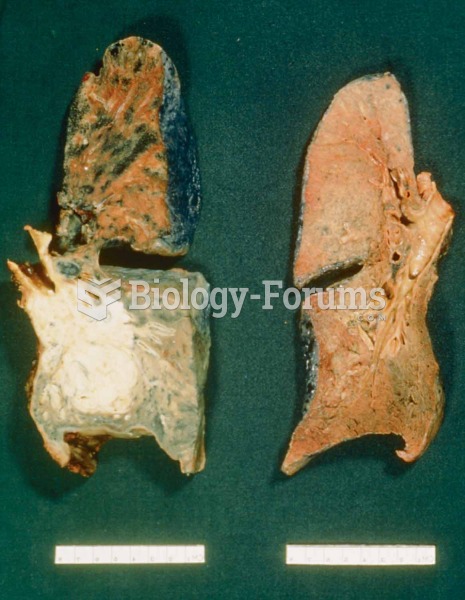|
|
|
The people with the highest levels of LDL are Mexican American males and non-Hispanic black females.
Anesthesia awareness is a potentially disturbing adverse effect wherein patients who have been paralyzed with muscle relaxants may awaken. They may be aware of their surroundings but unable to communicate or move. Neurologic monitoring equipment that helps to more closely check the patient's anesthesia stages is now available to avoid the occurrence of anesthesia awareness.
More than 50% of American adults have oral herpes, which is commonly known as "cold sores" or "fever blisters." The herpes virus can be active on the skin surface without showing any signs or causing any symptoms.
According to the American College of Allergy, Asthma & Immunology, more than 50 million Americans have some kind of food allergy. Food allergies affect between 4 and 6% of children, and 4% of adults, according to the CDC. The most common food allergies include shellfish, peanuts, walnuts, fish, eggs, milk, and soy.
To combat osteoporosis, changes in lifestyle and diet are recommended. At-risk patients should include 1,200 to 1,500 mg of calcium daily either via dietary means or with supplements.
 Spiral Produced by twisting stresses that are spread along the length of a bone (note the break in t
Spiral Produced by twisting stresses that are spread along the length of a bone (note the break in t
 The course of EEG stages during a typical night’s sleep and the relation of emergent stage 1 EEG ...
The course of EEG stages during a typical night’s sleep and the relation of emergent stage 1 EEG ...





